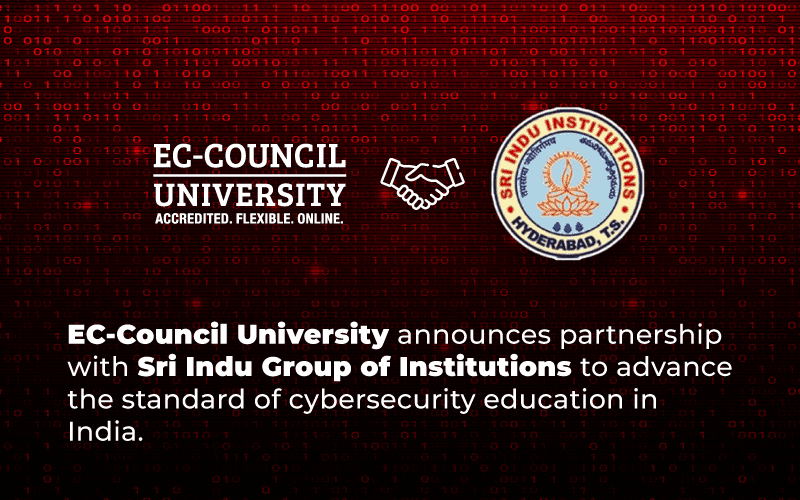Securing a competitive salary in the dynamic and high-demand cybersecurity field requires strategic planning and effective negotiation. While possessing the requisite skills and certifications is foundational, understanding the market dynamics, building a strong case, and employing proven negotiation tactics are essential to achieving your desired compensation.
Firstly it’s all about understanding the Cybersecurity Salary Market
Before starting salary negotiations, a comprehensive understanding of the cybersecurity salary landscape is imperative. This involves more than just average figures; it’s about identifying trends, differentials, and opportunities.
Industry-Specific Salary Benchmarks: Cybersecurity professionals must understand salary differentials across various industries to achieve optimal negotiation outcomes. While general cybersecurity salary trends offer valuable insights, a granular examination of industry-specific data is essential for accurate compensation benchmarking.
According to the Bureau of Labor Statistics, the average annual wage for information security analysts was $120,360 in May 2023, with job growth projected to be 32% from 2022 to 2032 (BLS, 2024). While these figures provide a starting point, a more in-depth analysis of industry-specific data is crucial for cybersecurity professionals seeking to maximize their earning potential
Cybersecurity professionals can effectively position themselves during negotiations by comparing salary benchmarks within key industry sectors.
- Financial Services: Given the high-stakes nature of the industry and the sensitive data involved, cybersecurity professionals in banking, insurance, and fintech often command premium salaries. The demand for robust security measures has driven up compensation packages for roles such as security architects, risk analysts, and incident responders. According to a report by Avance Consulting, financial institutions allocate substantial resources to cybersecurity, typically devoting 10% of their I.T. budgets to this critical area. This translates to approximately 0.2% to 0.9% of overall company revenue, or roughly $1,300 to $3,000 in cybersecurity expenditure per employee (Avance Consulting, 2022).
Also read: https://www.eccu.edu/blog/cybersecurity/why-is-cyber-security-important-in-the-financial-industry/
- Healthcare: The increasing reliance on digital health records and medical devices has made healthcare a prime target for cyberattacks. As a result, cybersecurity professionals in this sector are in high demand, with roles like healthcare information security officers and HIPAA compliance experts commanding competitive salaries.
- Government and Public Sector: While salary levels might vary across government agencies, the importance of protecting critical infrastructure and classified information has led to a growing demand for cybersecurity talent. Government cybersecurity roles often provide stability, comprehensive benefits packages, and opportunities for professional growth.
- Technology: The tech industry is a pioneer in innovation, and cybersecurity is a critical component of its progress. Companies in this sector invest heavily in protecting their intellectual property and customer data, leading to higher salaries for cybersecurity professionals. Roles in software, cloud, and application security are particularly well-compensated.
Salary Trends:
- Economic Conditions: The overall economic climate significantly impacts cybersecurity salaries. During economic booms, increased business activity leads to expanded I.T. budgets and higher demand for cybersecurity professionals. This surge in demand often translates to increased compensation packages. Conversely, economic downturns may result in hiring freezes, budget cuts, and reduced salary growth.
- Technological Advancements: It has transformed the cybersecurity landscape into a complex and dynamic arena. The emergence of artificial intelligence, cloud computing, and the Internet of Things has introduced unprecedented security challenges while also presenting new opportunities for innovation. These advancements require specialized skill sets, driving the demand for cybersecurity professionals with expertise in these areas. As a result, individuals possessing proficiency in these emerging technologies often command higher salaries.
- Skills Shortages: The persistent shortage of qualified cybersecurity professionals has become a global challenge. This talent scarcity has driven up salaries as organizations compete to attract and retain skilled cybersecurity talent. Niche skill sets, such as incident response, threat intelligence, and digital forensics, are in high demand, leading to premium compensation packages for professionals with this expertise.
Tools for Salary Research:
- Glassdoor: glassdoor.com
- Payscale: payscale.com
- LinkedIn Salary: linkedin.com/salary
- Indeed: indeed.com/salaries
- Salary.com: salary.com
- Bureau of Labor Statistics (BLS): bls.gov
Building a Strong Negotiation Case: Your ability to articulate your value is paramount. Here’s how to craft a compelling case:
- Quantifying Achievements: Use metrics to demonstrate your impact with numbers. It’s also beneficial to use a mix of quantitative and qualitative metrics. Use data, charts, graphs, or reports to show your quantitative metrics and testimonials, feedback, or awards to show your qualitative metrics. Highlight ROI by showcasing how your contributions directly translate into financial benefits for the company. Use real-world examples to illustrate your problem-solving abilities and the value you bring.
- Showcasing Unique Skills: Emphasize certifications that align with the company’s specific needs (e.g., CISA for audit and control, CEH for ethical hacking). Cybersecurity certifications can significantly boost earning potential. A 2020 Global Knowledge survey indicated that certified professionals in this field earned up to $18,000 more annually compared to their uncertified peers (Avance Consulting, 2022). Highlight advanced skills in areas like threat intelligence, incident response, or cloud security. Don’t underestimate the value of communication, leadership, and teamwork in cybersecurity roles.
- Understanding the Company’s Needs: Research the company by analyzing its industry, size, recent news, and competitors to identify their pain points. Then, align your skills to demonstrate how your expertise directly addresses the company’s challenges and goals.
What are some of the most effective negotiation strategies:
Successful salary negotiation is critical for cybersecurity professionals seeking to maximize their earning potential. Meticulous preparation, clear communication, and strategic foresight are essential for achieving positive outcomes. This section will explore key negotiation strategies to empower you to confidently advocate for your value, as successful negotiation is a blend of preparation, confidence, and strategic thinking.
- Know Your Worth: Conducting thorough research, considering your experience, and maintaining confidence in your abilities are essential for establishing a strong negotiation position.
- Focus on Value, Not Just Salary: Emphasizing the long-term benefits you bring to the company, offering solutions, and showcasing your potential strengthens your negotiation position beyond salary. Present ideas for improving security processes or reducing risks. Talk about your career aspirations and how they align with the company’s expansion.
- Consider the Total Compensation Package: Evaluating the entire compensation package, including bonuses, stock options, benefits, and work-life balance, provides a holistic view of the offer. Consider health insurance, retirement plans, paid time off, and professional development opportunities.
How do we leverage the power of personal branding?
Your personal brand can significantly influence your negotiation power.
- Start with Building a Strong Online Presence: Creating a professional online profile through platforms like LinkedIn, personal websites, and social media helps showcase your expertise and attract opportunities. Optimize your profile to showcase your achievements. Disseminate your knowledge and wisdom through content creation. Engage with the cybersecurity community and build a professional network.
- Networking and Relationship Building: Engaging with the cybersecurity community through industry events, professional organizations, and alumni networks expands your professional network and provides valuable insights.
- Certifications and Professional Development: Continuously investing in your education and skills demonstrates your commitment to the field and increases your earning potential.
References:
- S. Bureau of Labor Statistics. (April 17, 2024). Information Security Analysts
https://www.bls.gov/ooh/computer-and-information-technology/information-security-analysts.htm - Avance consulting. (September 2022). Cybersecurity Compensation Trends (USA) https://avanceservices.com/cybersecurity-compensation-trends-usa/
- Avance consulting. (September 2022). Cybersecurity Compensation Trends (USA) https://avanceservices.com/cybersecurity-compensation-trends-usa/








